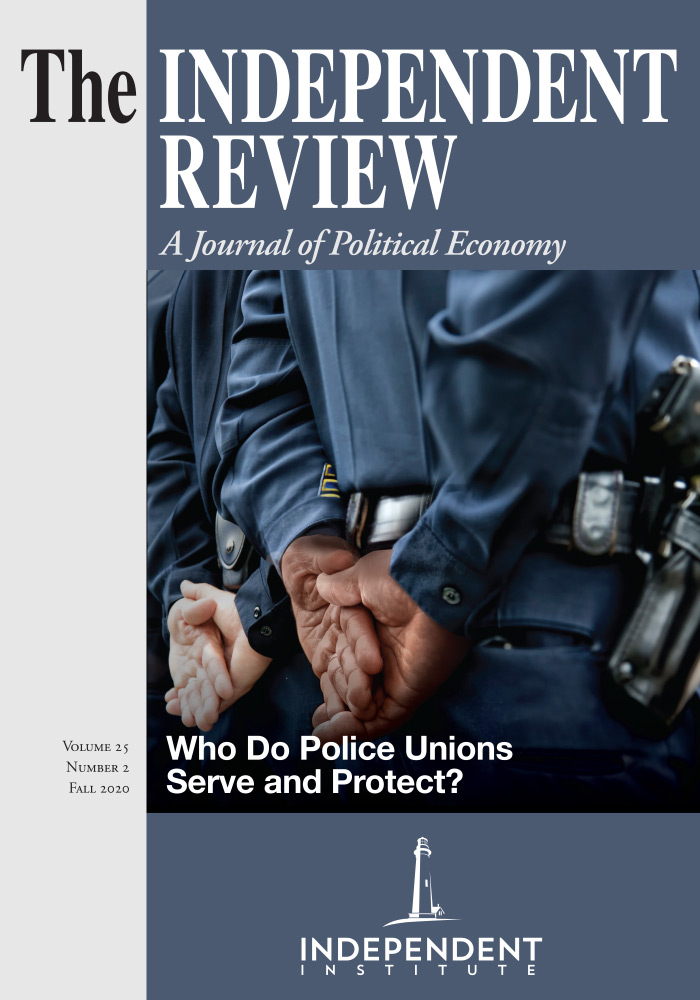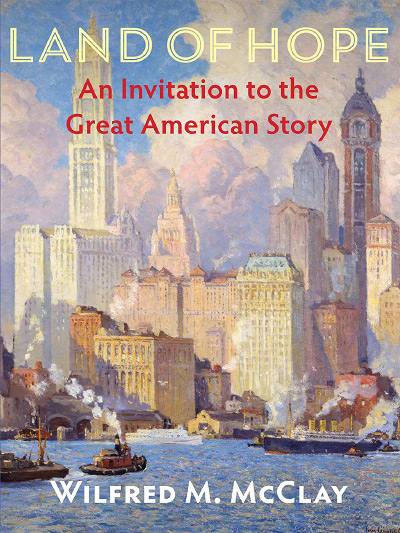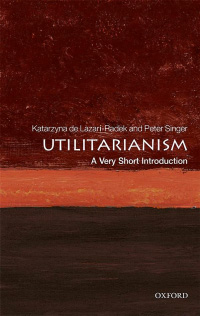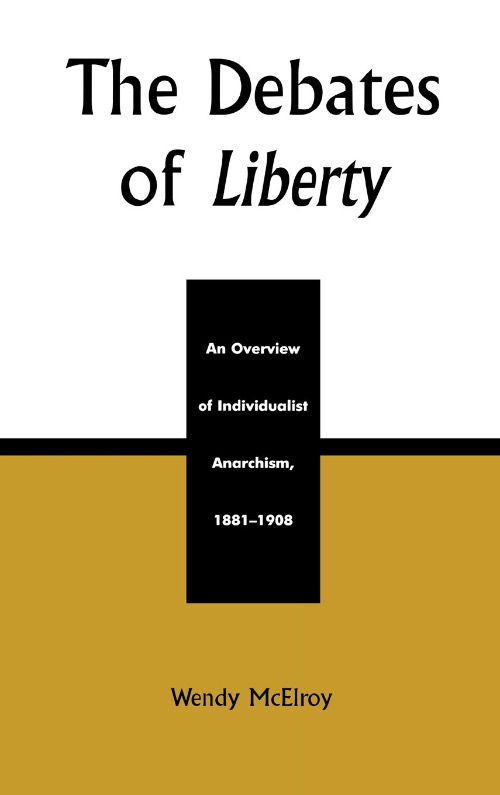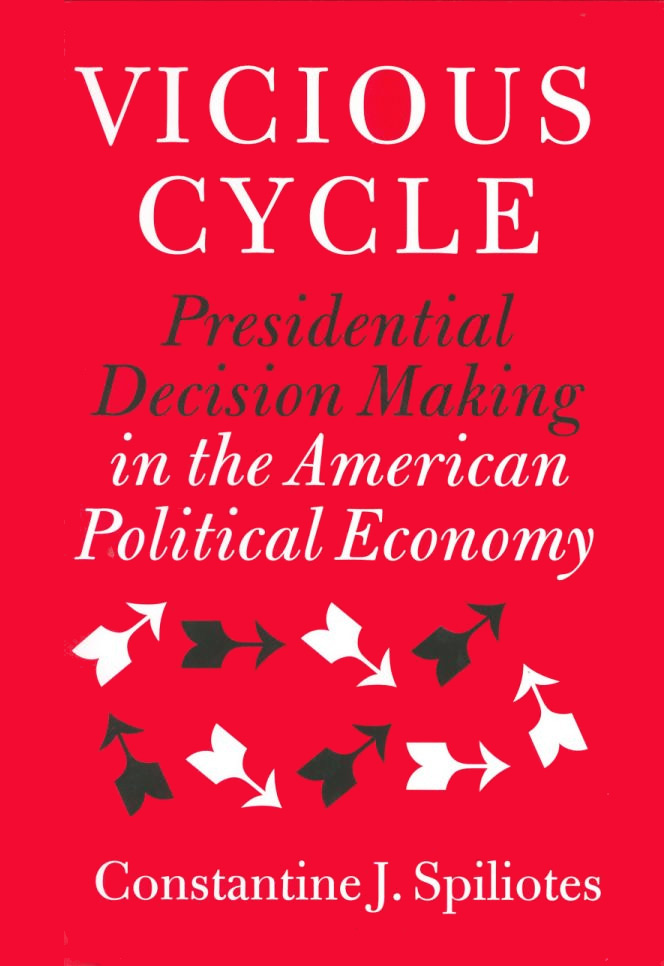“Historical consciousness is to civilized society what memory is to individual identity. Without memory, and without the stories by which our memories are carried forward, we cannot say who, or what, we are. Without them, our life and thought dissolve into a meaningless, unrelated rush of events. Without them, we cannot ... dwell harmoniously in society” (p. xii). To help us to dwell harmoniously and to reflect our history accurately, Wilfred McClay argues that we should recognize that America has always been a land of hope. He aims in Land of Hope to inspire readers—both young and old—rather than dispirit them. Implicitly, his book aims to paint a portrait that is unmarred by the distortions of the field’s best seller, Howard Zinn’s A People's History of the United States. (Earlier this year, I reviewed Mary Garbar’s Debunking Howard Zinn for The Independent Review.)
McClay’s history is largely a political history, with less attention to cultural and economic issues. Accordingly, “since we must begin in the middle of things,” McClay begins his history of America in the middle of Europe’s history, with English laws and customs (p. 7). In examining the encounter between Europeans and American Indians, he emphasizes the central role of disease: “It is crucial to keep in mind ... that the single most important factor leading to the extinction or dramatic reduction of various indigenous peoples after contact with the Spanish was not the cruelty of Spanish rule, but the epidemic spread of Old World diseases such as smallpox, measles, and malaria, to which the people of the Americas ... had no natural immunity” (p. 21). He ties the relative success of English colonization—“a haphazard collection of uncoordinated private undertakings”—to the English political system’s checks and balances, the common law, and a penchant for enterprise and commerce (p. 23). As Englishmen became Americans, they exhibited an “openness to experiment [and a] can-do optimism ... taking a fresh look at things, starting from no authority but reason” (p. 39).
In assessing key political controversies from colonial times to the present, McClay is careful to see the best arguments of all sides. The debate about the Declaratory Act (1766), in which the English Parliament asserted that its power over the colonies hinged on “sharply divergent ideas: about the proper place of America in the emerging imperial system, about the meaning of words like self-rule, representation, constitution, and sovereignty.It was a genuine debate, in which both sides had legitimate arguments” (p. 45, emphasis in the original). Later, he judges the disputes between Thomas Jefferson and Alexander Hamilton, as members of the first cabinet, regarding the legitimate functions of the federal government with an awareness that “as in many of the most bitter struggles, there was something to be said for, and against, both positions” (p. 82).
McClay’s analysis can be pithy and deeply insightful. After outlining the British strengths in the Revolutionary War, he explains that “the Americans enjoyed certain very real advantages. ... First, there was the fact that they were playing defense. ... The Americans also had a second advantage. They were blessed with an exceptional leader in the person of George Washington” (p. 53). His is not the tainted George Washington of modern retellings, but the Washington as people knew and respected him at the time. But he also recognizes that Washington was a slave owner (as were thirty of the fifty-five framers of the Constitution), who embodied the era’s “conflicted conscience” about slavery, and who manumitted his own slaves (p. 73). McClay reminds the reader that “the conditions of life in the United States would prove highly favorable to the steady natural increase in the slave population. ... In fact, slaves in the antebellum South would have the highest rate of natural increase of any slave society in history” (p. 73). He judges that “it would be profoundly wrong to contend, as some do, that the United States was ‘founded on’ slavery. No,” he continues almost poetically, “it was founded on other principles entirely, on principles of liberty and self-rule that had been discovered and defined and refined and enshrined through the tempering effects of several turbulent centuries of European and British and American history” (p. 73, emphasis in the original).
McClay captures the essence of the antebellum worldview by explaining that the Compromise of 1850, which attempted to defuse sectional rivalries, “would allow the country to turn its attention back to its real business, the taming and settling of a giant continent” (p. 159) and noting that, to Americans, the discovery of gold in California right after the Mexican War “seemed to be the crowning expression of divine favor. ... It was almost as if God had kept the gold hidden until the land came into the possession of the American republic” (p. 156). And, he cautions, “history is only very rarely the story of inevitabilities,” even in analyzing the march toward civil war.
Perhaps his most astute observations regard the nature of the Progressive movement: “Progressivism was a middle-class movement, reflecting the legacy of Protestant moral and ethical teaching—although conspicuously lacking in the hard-edged doctrine of original sin. That was a key omission. The Progressive view of human nature saw humans as fundamentally good, and evil as a function of bad social systems and corrupted institutions, not something irremediably wrong or sinful deep in the souls of individuals persons. There was no inherent limit to the improvability of the world. No problem was beyond solution” (p. 247). Hence, Progressives set out to fix everything. It was an “outlook that cared deeply about the common people and knew, far better than they did, what was best for them” (p. 248). He adds, “Thus there was always in Progressivism a certain implicit paternalism, a condescension that was all the more unattractive for being unacknowledged” (p. 248). This manifested itself in the early twentieth century in causes like outlawing child labor, protecting women in the industrial workforce, natural-resource conservation, railroad regulation, prohibition, racial segregation, and “scientific” eugenics. “In the end,” he writes, “the scientific roots of Progressivism were likely to be incompatible with its religious ones. ... It was Progressivism’s fate to try to hold on to both sets of values at the same time—an impossible task” (pp. 248–49).
If there’s an important weakness in Land of Hope, it is a bit of an allergy to numbers and failure to incorporate the findings of economic historians. For example, he suggests that debt peonage was common among former slaves, who had “no way to escape from the web of obligations, no way to accumulate capital and work toward independence” (p. 200). Works like Price Fishback’s “Debt Peonage in Postbellum Georgia” (Explorations in Economic History 26, no. 2 [April 1989]:219–36) debunk the idea that debt peonage was pervasive in the postbellum South. When I surveyed economists who were members of the Economic History Association (“Where Is There Consensus among American Economic Historians? The Results of a Survey on Forty Propositions,” Journal of Economic History 55, no. 1 [March 1995]: 139–54), 73 percent of them agreed with the proposition that “American blacks achieved substantial economic gains during the half-century after 1865.” When asked whether “in the postbellum South economic competition among whites played an important part in protecting blacks from racial coercion,” 66 percent agreed. McClay’s take on economic conditions among industrial workers and farmers in the late 1800s is also wide of the mark. He presents farmers “struggling with bankers, railroads, grain-elevator operators, and a crowd of other middlemen and creditors, just to be able to get their livelihood,” failing to note the immense gains from voluntary trade between farmers and all of these supporting groups (p. 241, emphasis added). He misses the vast improvements in standards of living brought by market competition in suggesting that workers’ “best weapon” to resist bad working conditions “was the formation of unions” (p. 215). In the aforementioned survey of economists, 82 percent agreed that “the reduction of the length of the workweek in American manufacturing before the Great Depression was primarily due to economic growth and the increased wages that it brought,” while 71 percent disagreed with the statement that “the reduction in the length of the workweek in American manufacturing before the Great Depression was primarily due to the efforts of labor unions.” Competition among employers was the worker’s friend and workers exercised the ability to “vote with their feet” to move to better economic conditions. In the late 1800s in many manufacturing industries, unmarried men actually earned more than married men (holding everything else constant), an indication that ease of movement among jobs led workers to receive better offers. Finally, McClay states that “there are basically two schools of thoughts about the causes of the Great Depression. There are those who place the principal blame on underconsumption, which means that there was a loss of broadly distributed purchasing power in the economy ... leaving the great mass of potential consumers unable to buy the goods that the ever more productive American economy was churning out. ... Others blame bad government policy for turning an ordinary recession into a full-blown and persistent depression” (p. 295). Despite McClay’s assertion, very few economists today credit “underconsumption” and economic inequality as a cause of the Great Depression, although contemporaries did.
McClay duly credits Franklin Roosevelt with lifting the nation’s spirits, “convincing Americans that their government cared about them and was determined to address the plight of its more vulnerable citizens. This was no small thing. The art of governing well is not only a matter of satisfying material needs but also one of supplying hope. The New Deal had done that” (p. 310). On the other hand, he dismantles the National Recovery Administration, a cornerstone of Franklin Roosevelt’s first New Deal: “The NRA enjoyed a few limited successes, but the agency very rapidly became completely unmanageable. ... Imagine taking the burden of evaluating every price, every wage, every transaction, every rule of competition, every production quota, in a sprawling and ever-changing national economy. The job would be overwhelming. Every single decision made would have to take into account dozens of unforeseen and unforeseeable effects, because every economic decision has consequences ramifying out from it in dozens of directions” (pp. 308–9). His coverage of the New Deal also includes the playful lyrics to the Mills Brothers song “The WPA”: “Sleep while you work, while you rest, while you play; Lean on your shovel to pass time away; T’aint what you do; you can die for your pay: The WPA” (p. 307).
His coverage of more recent history continues the theme of hope. Ronald Reagan, McClay writes, “had been a liberal Democrat himself in his younger days, and even when he had come to reject many of the policies of the New Deal and Great Society, he never rejected the example of Franklin Roosevelt or neglected the great lesson of Roosevelt’s presidency: a democratic leader’s essential role, above all else, is to be a purveyor of hope and a prophet of possibility” (p. 401). And, he adds, “ideas never translate automatically into politics; they have to be embodied in people”, as they were in both Roosevelt and Reagan, and later in Barack Obama (“Hope and Change”) and Donald Trump (“Make America Great Again”) (p. 401).
Throughout Land of Hope, McClay masterfully includes quotes from historical actors, great and small, that embody hopes and fears. Jonathan Winthrop’s 1630 exhortation that “we must delight in each other; make others’ conditions our own, rejoice together, mourn together, labor and suffer together ... as members of the same body” is followed by wisdom from people like John Quincy Adams, Calvin Coolidge, and Martin Luther King Jr. (p. 27). An especially apt inclusion is from Dwight Eisenhower’s farewell address, which advised us to “avoid the impulse to live only for today, plundering for our own ease and convenience the precious resources of tomorrow. We cannot mortgage the material assets of our grandchildren without risking the loss also for their political and spiritual heritage. We want democracy to survive for all generations to come, not to become the insolvent phantom of tomorrow” (p. 366). These inclusions and an almost unending stream of telling examples and trenchant observations show both his depth of knowledge and mastery of historical narrative.
Unlike many other histories, McClay’s book “never loses sight of what there is to celebrate and cherish in the American achievement. That doesn’t mean it is an uncritical celebration. The two things, celebration and criticism, are not necessarily enemies. Love is the foundation of the wisest criticism, and criticism is the essential partner of an honest and enduring love” (p. 423). His book is “offered as a contribution to the making of American citizens. As such, it is a patriotic endeavor as well as a scholarly one” (p. 423). As Joseph Conrad explained (“Prince Roman,” in Tales of Hearsay [New York: Doubleday, Page, and Company, 1925], 29–30), “It requires a certain greatness of soul to interpret patriotism worthily.” Land of Hope does so.
| Other Independent Review articles by Robert M. Whaples | ||
| Spring 2025 | Millennials, Gen Zs, Capitalism, Socialism, and Confusion | |
| Spring 2025 | Not Stolen: The Truth about European Colonialism in the New World | |
| Spring 2025 | Green Breakdown: The Coming Renewable Energy Failure | |
| [View All (106)] | ||

